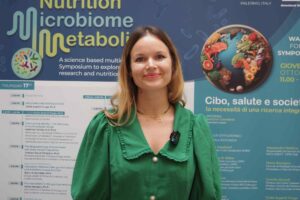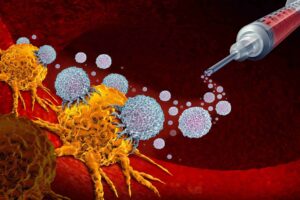What is already known
In infants, respiratory syncytial virus (RSV) is a major cause of respiratory infections that can leading to severe illness and long-term issues such as wheezing. Studies have suggested that the early-life microbiota of the nose and throat influences the severity of RSV infections, but exactly how certain bacteria affect disease severity and long-term symptoms is unclear.
What this research adds
By analyzing swabs taken from the back of the nose and upper throat of more than 1,100 infants, researchers found that those with RSV infections had a distinct respiratory microbiome compared to healthy infants, with lower microbial diversity during and after infection. Specific bacteria, including Moraxella, Haemophilus and Streptococcus, were associated with more severe RSV cases, while bacteria such as Corynebacterium were less abundant in infants with RSV infections than in healthy infants. Long-term respiratory symptoms were linked to higher levels of Haemophilus and lower levels of Dolosigranulum bacteria.
Conclusions
The findings suggest that the microbial communities inhabiting an infant’s nose and throat can play a role in the severity of RSV infections.
In infants, respiratory syncytial virus (RSV) is a major cause of respiratory infections that can leading to severe illness and long-term issues such as wheezing. New research now shows that the respiratory microbiota at the time of infection is associated with disease severity and long-term symptoms.
The findings, published in Cell Reports Medicine, suggest that the microbial communities inhabiting an infant’s nose and throat can play a role in the severity of RSV infections.
“During RSV infection, we observed that RSV disease severity was associated with greater deviation in microbial community profiles when compared to healthy children,” the researchers say. “Importantly, also during the recovery phase, the respiratory microbiome was linked with the presence of residual respiratory symptoms.”
Studies have suggested that the early-life microbiota of the nose and throat influences the severity of RSV infections, but exactly how certain bacteria affect disease severity and long-term symptoms is unclear.
To investigate the microbiota’s role in RSV infection severity, researchers led by Maartje Kristensen at the University Medical Center Utrecht, the Netherlands, set out to analyze 1,537 swabs taken from the back of the nose and upper throat of more than 1,135 infants across five countries.
Disease severity
The researchers found that the composition of the respiratory microbiota of infants during and after RSV infection differed from that of healthy infants, with lower microbial diversity and richness after infection. The analysis also revealed shifts in the overall composition between the acute and recovery phases of infection.
Specific groups of microbes, such as those dominated by Moraxella, Haemophilus or Streptococcus bacteria, were linked to RSV infection, with the microbiota composition varying with increasing disease severity.
In severe cases, bacteria such as Streptococcus pneumoniae were more prevalent, while the levels of Corynebacterium and other beneficial microbes were reduced. After severe RSV infection, some long-term respiratory symptoms were linked to a higher abundance of Haemophilus and lower levels of Dolosigranulum bacteria, the researchers found.
Exacerbating inflammation
Further analyses revealed that the early-life microbiota composition did not predict whether infants would get RSV infections in their first year of life. “The early-life respiratory microbial community composition seems unrelated to the risk of RSV infection, which may be more driven by risk factors like age at RSV season, and crowding,” the researchers say.
The findings suggest that alterations in the early-life microbiota can contribute to inflammation, which may exacerbate the severity of RSV infections, although more research is needed to understand the long-term effects of these microbial changes, such as their role in asthma development.
The study also highlight the importance of studying the microbiota over time. Long-term sampling of respiratory microbes could help scientists better understand how early microbial patterns influence susceptibility to RSV and disease severity, the authors say.











